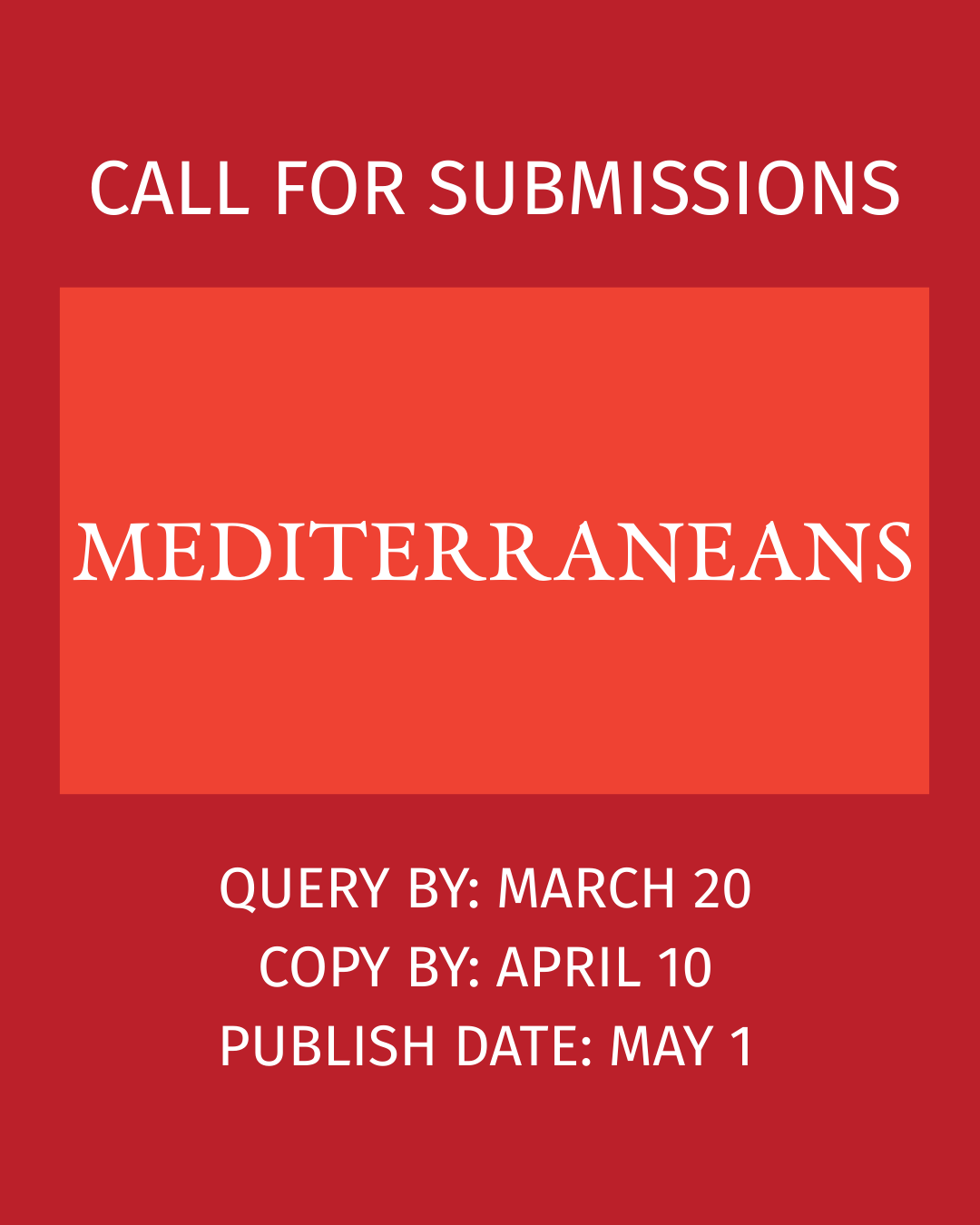Our next theme issue — MEDITERRANEANS — is intentionally plural, evoking, in our minds, the ancient and contemporary flow of people and civilizations that criss-cross the region, from Spain and Italy to Greece and Turkey, from Lebanon to Egypt to Libya, extending along the shores of North Africa and beyond. A plurality of places, in other words, a region teeming with histories of empire and trade, of migration and exile, but also, notably, a sea! And one warming rapidly, faster than any other in the world. The perfect confluence, perhaps, of man-made ecological disaster and vast systems of surveillance, policed borders, and cruelest of all, blithe indifference to the suffering of some, but certainly not all. For MEDITERRANEANS also references the various seas of the region: one an aquatic graveyard, a repository of broken dreams and failed crossings; the other, a vacation destination, sun, sand, and pay no mind to the makeshift boats barely discernible along the horizon.
We invite you to query about your writing, art, photography, film, music and other creative forms related to this rich region, pieces that are sorrowful or filled with yearning, yes, but also hopeful and celebratory and most of all, vibrant. The sting of salt on your skin, the Mediterranean heat bearing down, the taste of a family recipe, the shape of water, be it raging, ruthless, tranquil, or transcendent. Whatever your take, if your work engages with these myriad Mediterranean realities, we are eager to consider it. DUOSUMA

In addition to six bimonthly themed issues a year, The Markaz Review publishes regular weekly pieces. Our mission is broad but specific: to amplify voices from the “center of the world”—the Middle East, North Africa, and Southwest Asia (SWANA). In a world riven by injustice and inequality, we seek writing from and about these regions oft-overlooked, dismissed, and/or reduced to caricature and stereotype in and by western narratives. To this end, we invite submissions all year-round: essays, feature articles, short stories, memoir, translations, creative nonfiction, poetry, reviews of books, film, music, art, and theatre, as well as compelling profiles and interviews. For specific information about submissions (e.g., word length and how to query), please review our FAQ section. TMR is open to both emerging and established writers, and to writing in multiple languages, with a single caveat: literary excellence. So go ahead — wow us, surprise us, impress us, humble us, teach us. DUOSUMA
